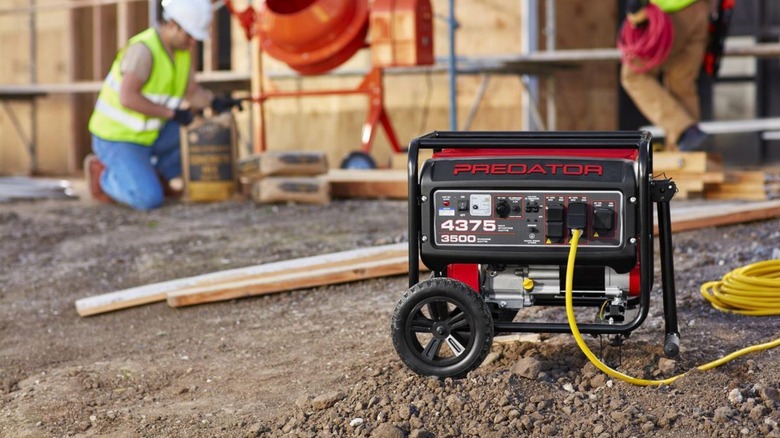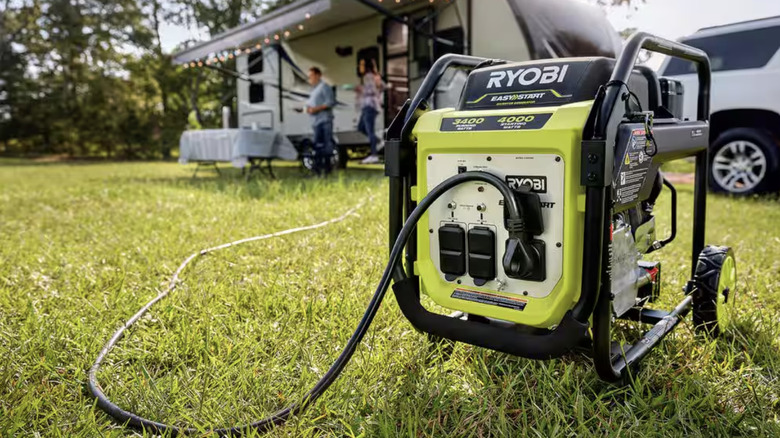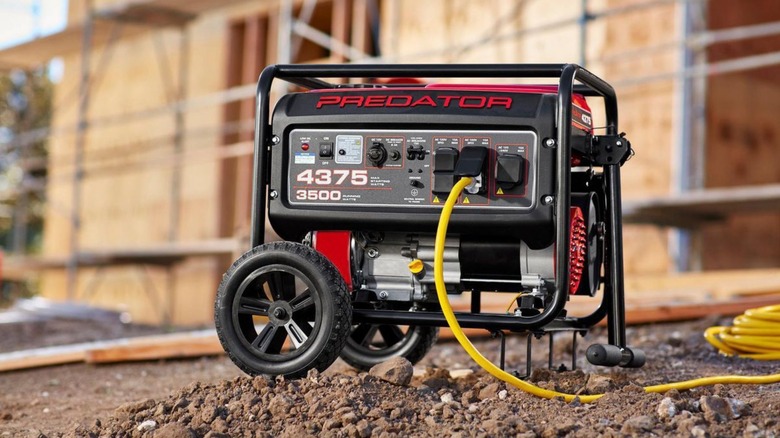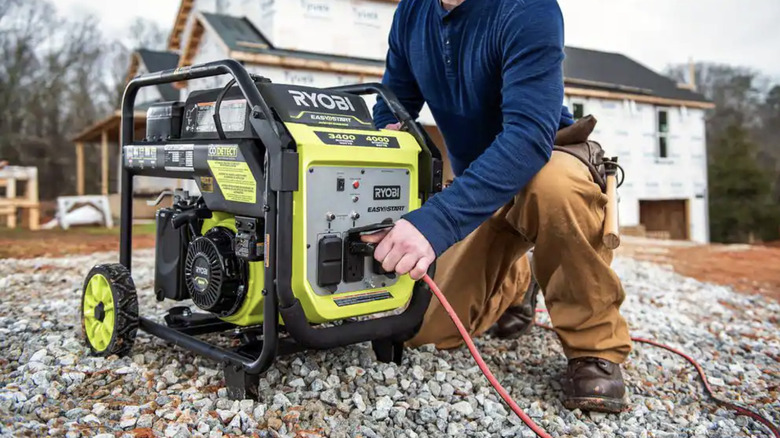Harbor Freight's 4375W Vs. Ryobi's 4000W Inverter Generator: What's The Difference?
Generators come in many sizes and forms, such as gas-powered, electric, and propane. However, it's important to choose the right generator for your home or place of work so you won't find yourself with less power than you actually need. A smaller 1000-watt generator won't be able to power something as big as a desktop computer or a mini fridge in your RV. You'll want something closer to the 4000-watt starting range to get that kind of capability.
Both Harbor Freight's Predator 4375 Watt Generator and Ryobi's 4000 Watt Inverter Generator are extremely capable pieces of gas-powered equipment that can help you power many items, from lights to a small air compressor. Furthermore, these two generators have many of the same features, like a 212cc engine, 120-volt outlets, and recoil start. However, there are a few attributes that are different between the two generators, especially since they come from different manufacturers. Ryobi is made by Techtronic Industries TTI, which also makes Milwaukee another top-tier power tool brand. Predator is made and sold by Harbor Freight. Let's dive into the key differences between the two.
Inverter vs non-inverter generator
The biggest difference between these Predator and Ryobi generators is that Predator is a non-inverter generator, while Ryobi is. An inverter generator typically burns less fuel and creates fewer emissions while in use because it only outputs enough energy that the item plugged in needs. This means that it won't always run at max capacity, unlike traditional generators like the Predator discussed in this article.
The difference in power output also means that inverter generators tend to run quieter than traditional ones. Ryobi's generator has a sound rating of 67dB, while the Predator generator has a sound rating of 72.5 dB. However, it should be noted that in the reviews for the Predator, many consumers stated that for a traditional generator, this one was fairly quiet compared to some others that they have used. In the end, it's up to you which type you want to invest in, especially given the other differences between the generators.
Difference in numbers
Though the watts for both generators are very close, a hundred watts or so can make all the difference, depending on what type of equipment you are trying to power. The Predator's max starting watt is 4375 with a running watt of 3500. Ryobi's is 4000 starting and 3400 running. Though it may not seem like much, if an air compressor's starting wattage is 4200, the Ryobi generator just won't cut it. Make sure to check the needed watts for your equipment to know which generator will fit your needs.
Additionally, the runtime is drastically different. The Predator can run up to 16 hours at 50% load, while Ryobi can only do 12 hours with the same load. However, this nearly equals out since the fuel tank capacities are a bit different as well. Predator can hold up to 4 gallons of gas, while Ryobi can only hold 3.2 gallons. With all that being said, though, Predator has more wattage and a larger gas tank, so it is still cheaper than Ryobi's generator. Predator will run you around $480 at Harbor Freight, while Ryobi costs around $800 at Home Depot and on the Ryobi website.
Difference in features
There are a couple of features that are different between the two generators. Firstly, portability: The Predator weighs quite a bit, coming in at 105 pounds, but it doesn't come with wheels. You would have to purchase the Predator Generator Wheel Kit separately. On the other hand, Ryobi's generator is not only lighter, weighing 85 pounds, but it also comes with wheels and a flip-up handle.
Both generators have four 120-volt 20-amp outlets—however, that's where the similarities stop. Ryobi does have a standard 120-volt 30-amp outlet as well, but Predator takes it a step forward. Its 30 amp outlet is a twist-lock outlet and can also support 240 volts. Additionally, the Predator also comes with a DC 12-volt 8-amp outlet, so your choices are much more varied. So, while both of these generators have these differences, it's up to you what you feel will work best for your needs.



